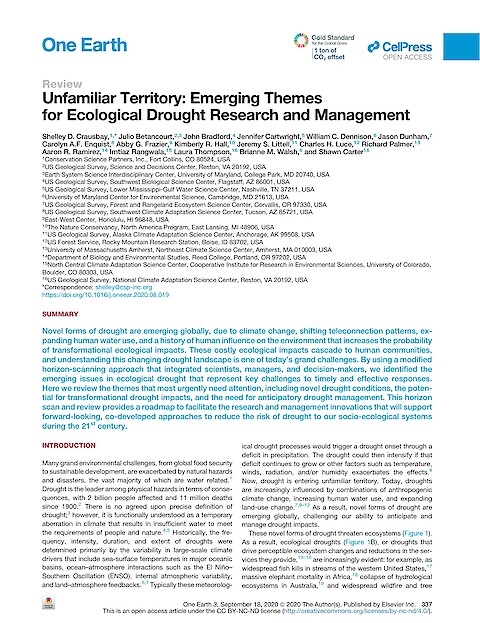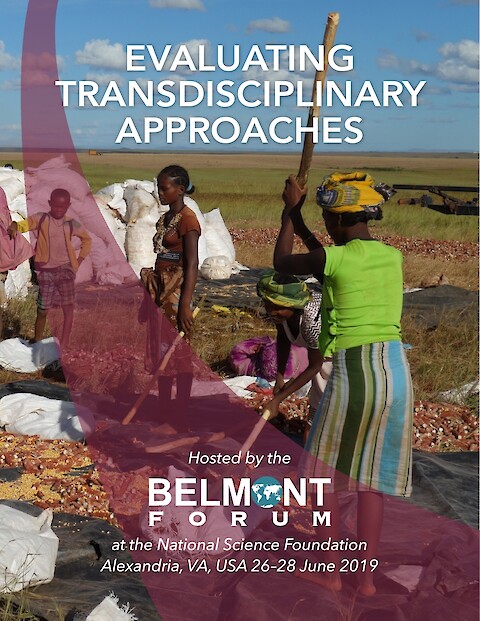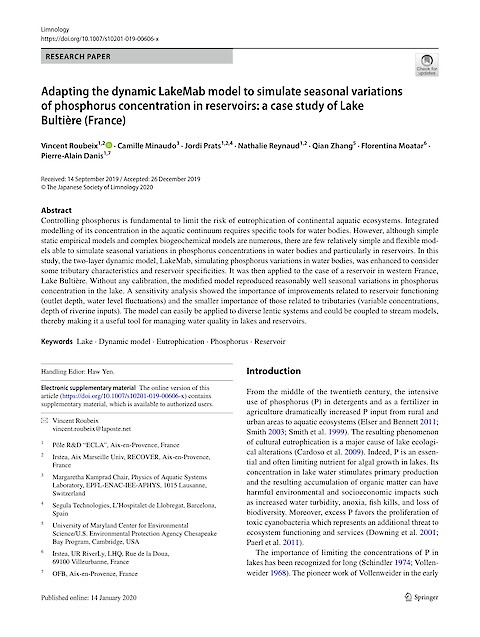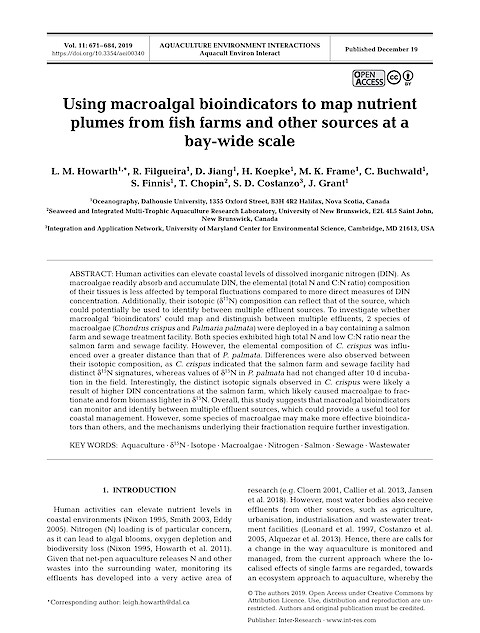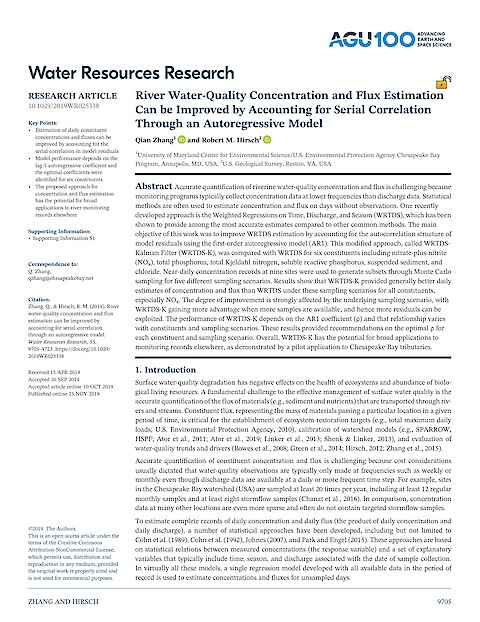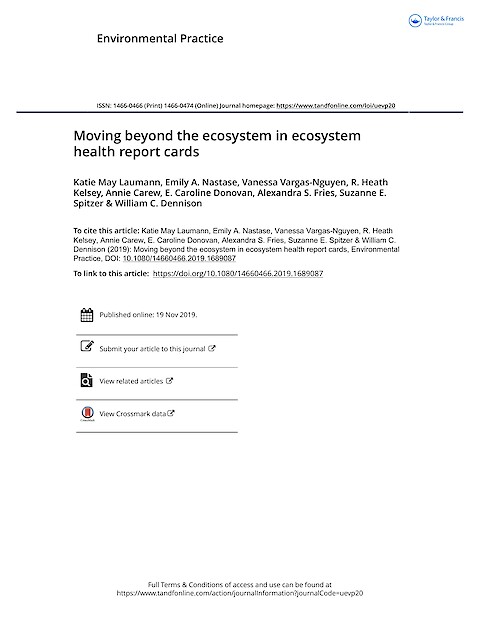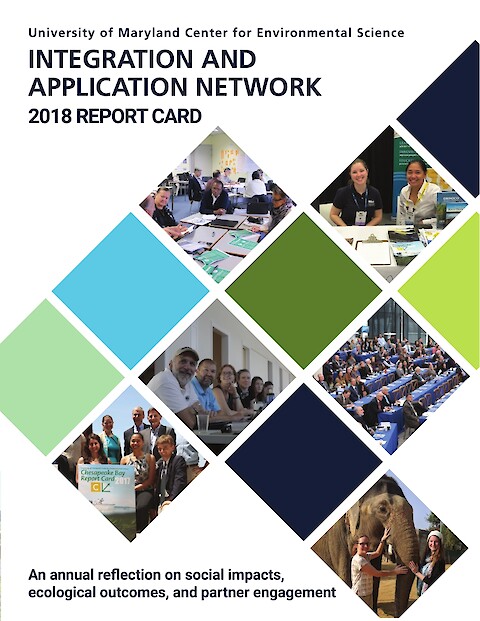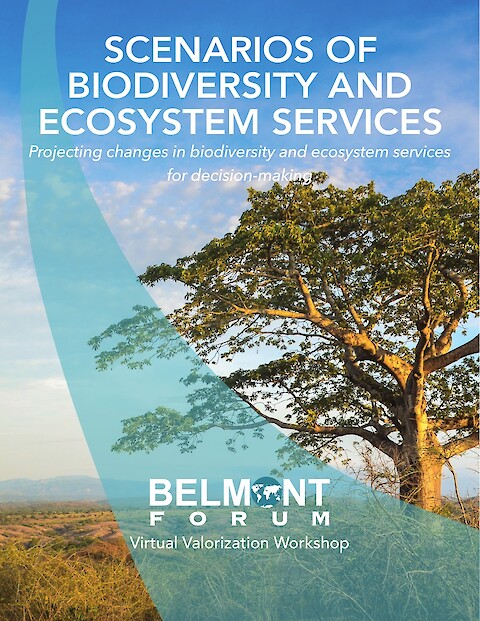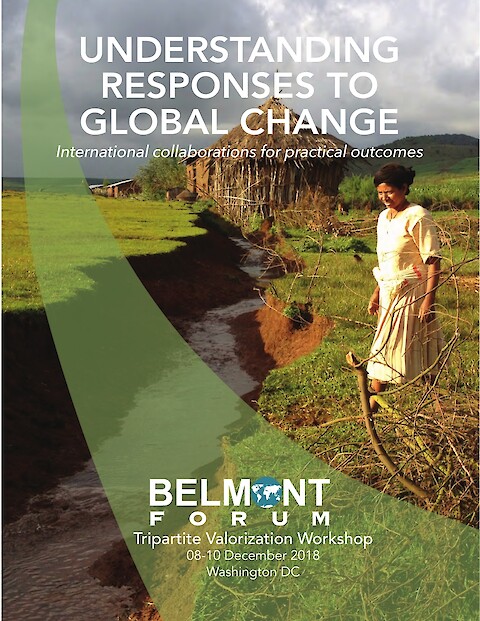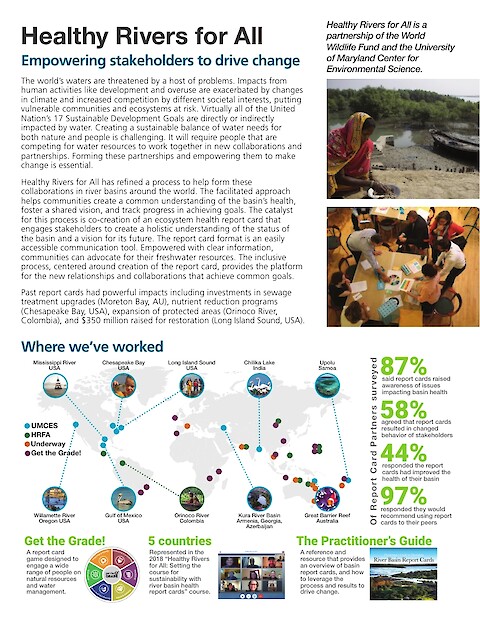Unfamiliar Territory: Emerging Themes for Ecological Drought Research and Management
Crausbay SD, Betancourt J, Bradford J, Cartwright J, Dennison WC, Dunham J, Enquist CAF, Frazier AG, Hall KR, Littell JS, Luce CH, Palmer R, Ramirez AR, Rangwala I, Thompson L, Walsh BM, Carter S ·
2020
Novel forms of drought are emerging globally, due to climate change, shifting teleconnection patterns, expanding human water use, and a history of human influence on the environment that increases the probability of transformational ecological impacts. These costly ecological impacts cascade to human communities, and understanding this changing drought landscape is one of today’s grand challenges.
Read more


